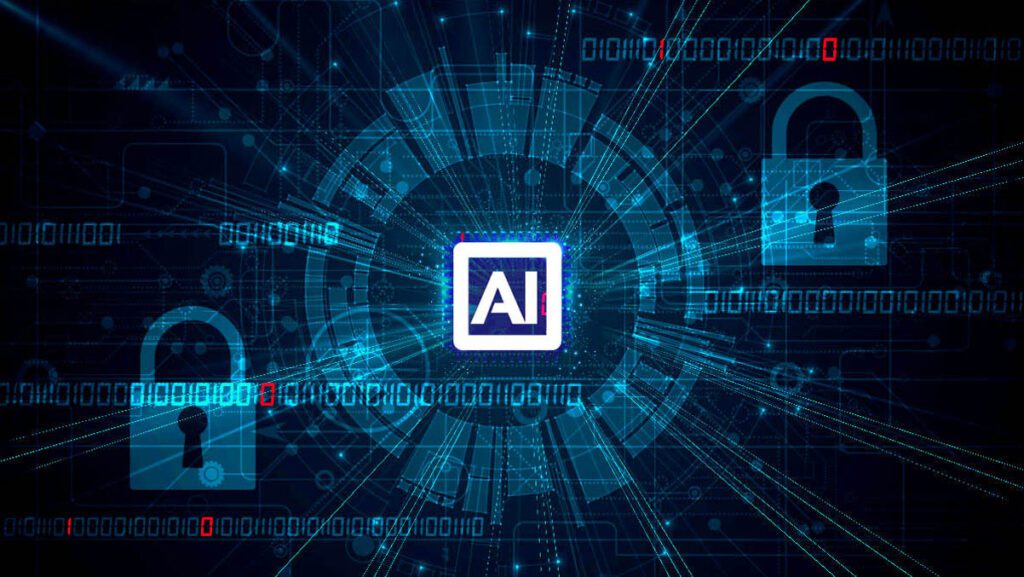
Cybersecurity and artificial intelligence (AI) are two very trending topics at the moment. AI has been the pivotal elements modifying business strategies, improving decision-making processes, and triggering automation in every industry in the world. The latest sentience debate is a clear indicator on serious and advanced AI is becoming nowadays. Cybersecurity is the other important element of today’s technological world. With an increasing reliance on data and the move to online services that require an individual’s biometrics, security essential in preventing data thefts and associated cybercrimes. AI has undeniably improved cybersecurity practices by allowing a real-time analysis of internet traffic to discover possible threats at the earliest and take defensive actions. This important learning process hides however several disadvantages of AI in cybersecurity.
What Are the Downsides to AI in Cybersecurity?
The touted advantages of AI in cybersecurity are real and very useful. However, the increasing adoption of AI solutions for security is actually causing problems at different levels.
Hackers Use AI as Well
When it comes to maturity in technology, hackers are the best at it. These individuals sitting behind computer screens logging data and doing advanced analytics to identify any loophole or vulnerability they can use to their benefits. The use of AI as far as cybersecurity is concerned is a double-edged sword. It is actually a race of who can develop a better algorithm that caters better to the data which is circulating online. In this sense, the use of AI is a big threat to security.
Another issue is that while a company is analyzing and learning from data to discover threats, a hacker is concurrently analyzing the company’s cyber-defense mechanisms and policies to find “open doors’ that will take it into the system to complete the intended attack.
Data Confidentiality
AI algorithms are associated with the analysis with large volumes of data, a key requirement for the developed algorithms to produce accurate outputs. The data a company deals with contains normal traffic related to daily transactions and activities, but also sensitive information related to the clients including their biometrics and personal information. What happens to our data when it goes to the AI-agent though is another thing. Protecting the data is key when AI is used for cybersecurity reasons. The secrecy of the clients’ data should not be compromised for any reason.
Increasing Need for Data
The field of cybersecurity is constantly evolving with ingenious attacks and threats emerging every now and then. Browser-in-the-browser attacks and increasingly advanced ransomware attacks have been notable examples in 2022. In order to discover attacks at a later stage, the AI algorithm needs to have data to do the proper training. The increasingly dynamic environment with threats emerging and evolving will lead to a surge in the required volumes of data, which can potentially not be readily available to have a fast response to the attack itself. Whether it is the ability of AI to keep track of the exponential growth in data or the availability of data for the AI-algorithm to produce results is a big disadvantage of this approach for cybersecurity
Will Cybersecurity be Replaced by AI?
With the drive towards more and more automation, it is questionable whether this can be applied as well for cybersecurity practices. AI can certainly assist in processing and learning from data and produce insights. However, the real decision maker in such as sensitive area where no errors can be tolerated is the cybersecurity expert himself. The only way for AI to replace cybersecurity is when it becomes sentient or developed enough to think and act like humans do. There is still a long way for that to concretize.
Explainable or interpretable AI is a key intermediate step in reaching this target. First, we need to understand how AI produces results. Proper cybersecurity practices require a reduction in bias while optimizing the performance of the algorithm.
How Will AI Affect Cybersecurity Jobs?
The adoption of AI will certainly cause major shifts in the cybersecurity job market as in the case in other industries, but probably at a smaller scale. The level of skill and experience needed to thwart cyberattacks will safeguard the need for security experts to provide the final decision regarding suspicious data patterns.
On the other hand, the incorporation of AI will call for new skilled workers that can manage and optimize the performance of the algorithms. Another alternative would be for existing workforce to be upskilled and retrained to handle the new analysis tools.
Summary
As data is becoming the basic unit for decision making, AI has invaded all industries and businesses, including cybersecurity. Companies are starting to incorporate learning algorithms to their offered services in order to have a more intelligent management of the different security threats. However, the role of AI in cybersecurity should be considered with enough judgment. The addition of AI would increase the complexity in the data management process, notably in terms of data privacy and the continuous need for more data.
“Inside Telecom provides you with an extensive list of content covering all aspects of the tech industry. Keep an eye on our Cybersecurity and Artificial Intelligence space to stay informed and up-to-date with our daily articles.”